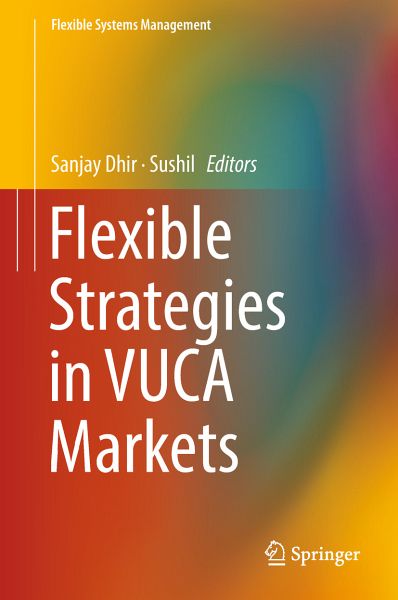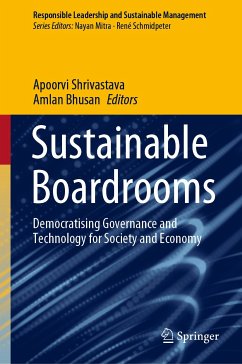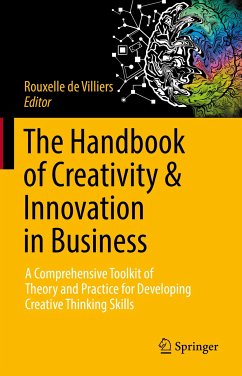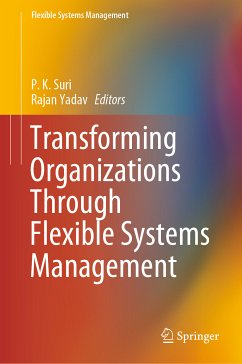
Flexible Strategies in VUCA Markets (eBook, PDF)
Versandkostenfrei!
Sofort per Download lieferbar
112,95 €
inkl. MwSt.
Weitere Ausgaben:

PAYBACK Punkte
56 °P sammeln!
This book discusses the concepts of volatility, uncertainty, complexity, and ambiguity (VUCA) that are the core of various paradigms used in strategic management to understand competitive advantage as well as flexibility in organizational boundaries. It serves as a valuable reference resource in the area of VUCA markets.An increase in the levels and types of uncertainty has important implications potentially for the durability of a company's advantages, the way firms learn and adapt, approaches for managing innovation and knowledge, and the attractiveness of different strategies and organizati...
This book discusses the concepts of volatility, uncertainty, complexity, and ambiguity (VUCA) that are the core of various paradigms used in strategic management to understand competitive advantage as well as flexibility in organizational boundaries. It serves as a valuable reference resource in the area of VUCA markets.
An increase in the levels and types of uncertainty has important implications potentially for the durability of a company's advantages, the way firms learn and adapt, approaches for managing innovation and knowledge, and the attractiveness of different strategies and organizational models. In today's world, strategic flexibility in VUCA is essential for business leaders to sustain market advantage and attain a clear vision amid the chaos. Business leaders who stay focused and are aware of external volatility as the prevalent characteristic are successful, while those who are not flexible in this VUCA world and lock themselves into fixed positions lose out.
The book includes empirical and conceptual research papers along with case studies and models discussing strategies for emerging markets in volatile and uncertain environments. It also covers a variety of issues, including innovation, people and processes, financial management, and leadership and strategies in VUCA markets. Apart from research fraternity and academia, the contents of the book will be useful for practitioners as well as industry watchers.
An increase in the levels and types of uncertainty has important implications potentially for the durability of a company's advantages, the way firms learn and adapt, approaches for managing innovation and knowledge, and the attractiveness of different strategies and organizational models. In today's world, strategic flexibility in VUCA is essential for business leaders to sustain market advantage and attain a clear vision amid the chaos. Business leaders who stay focused and are aware of external volatility as the prevalent characteristic are successful, while those who are not flexible in this VUCA world and lock themselves into fixed positions lose out.
The book includes empirical and conceptual research papers along with case studies and models discussing strategies for emerging markets in volatile and uncertain environments. It also covers a variety of issues, including innovation, people and processes, financial management, and leadership and strategies in VUCA markets. Apart from research fraternity and academia, the contents of the book will be useful for practitioners as well as industry watchers.
Dieser Download kann aus rechtlichen Gründen nur mit Rechnungsadresse in A, B, BG, CY, CZ, D, DK, EW, E, FIN, F, GR, HR, H, IRL, I, LT, L, LR, M, NL, PL, P, R, S, SLO, SK ausgeliefert werden.












